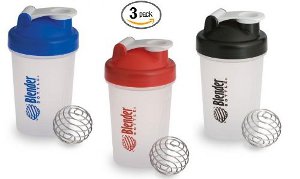 The vitamins and minerals are absorbed by the body in a variety of ways. Vitamins and minerals first enter the body through the food we eat. Second, we can take vitamin supplements to increase the amount of vitamins and minerals that are relevant. There are different methods of taking medication and one of the most common methods is to take it in liquid form.
The vitamins and minerals are absorbed by the body in a variety of ways. Vitamins and minerals first enter the body through the food we eat. Second, we can take vitamin supplements to increase the amount of vitamins and minerals that are relevant. There are different methods of taking medication and one of the most common methods is to take it in liquid form.
Absorption is better for children:
Although liquid vitamins may taste worse than vitamins in flavored chewable tablets, yet are easier to absorb. Because of its form, liquid vitamins are absorbed immediately into the blood stream for a more systemic administration of vitamin and its average absorption rate is approximately 90-98%. These are three to five times more concentrated than vitamin pills and this leads to a greater bio-activity and greater therapeutic benefits.
The link between antioxidants and vitamins liquid:
Have you ever wondered if liquid vitamins contained antioxidants as well? Vitamin E, C and A are examples of antioxidants, and are often found in vitamin supplements.
And the answer is absolutely yes. Liquid vitamins should actually contain such antioxidants. Important antioxidants such as – Vitamins A, C and E – are not internally produced by the body and therefore should be a regular part of our diet.
Comparison between digestive acids and liquid vitamins:
One reason why people refuse to acknowledge the benefits of liquid vitamins because of the supposed destruction by digestive acids of any vitamin or mineral that are not recognized as part of the process of digestion. Our digestive system is capable of absorbing liquid vitamins and minerals better instead of tablets or capsules.
A vitamin pill or tablet, needs to be completely digested before it can benefit the human body. Liquid vitamins however get absorbed approximately 90% by the body. It is important to remember that digestive system works primarily to transform the substances that can be used to improve the general constitution of the body.
Liquid Vitamins: Toxic or Not?
Another problem is the amount of colloidal minerals contained in liquid vitamins. They are dangerous or not?
In truth, even plants and fruits contain traces of minerals. Apples, for example, contain aluminum. But have you heard someone say that apples are dangerous to your health? Instead, you are more likely to hear that an apple a day keeps the doctor away.
So it must be with liquid vitamins as well. It contains a small amount of colloidal mineral does not mean it is bad for our health. Colloidal minerals are on all elements of the nature and can not therefore be avoided.
It’s up to you to decide whether you want to take vitamin supplements in liquid or solid form.


